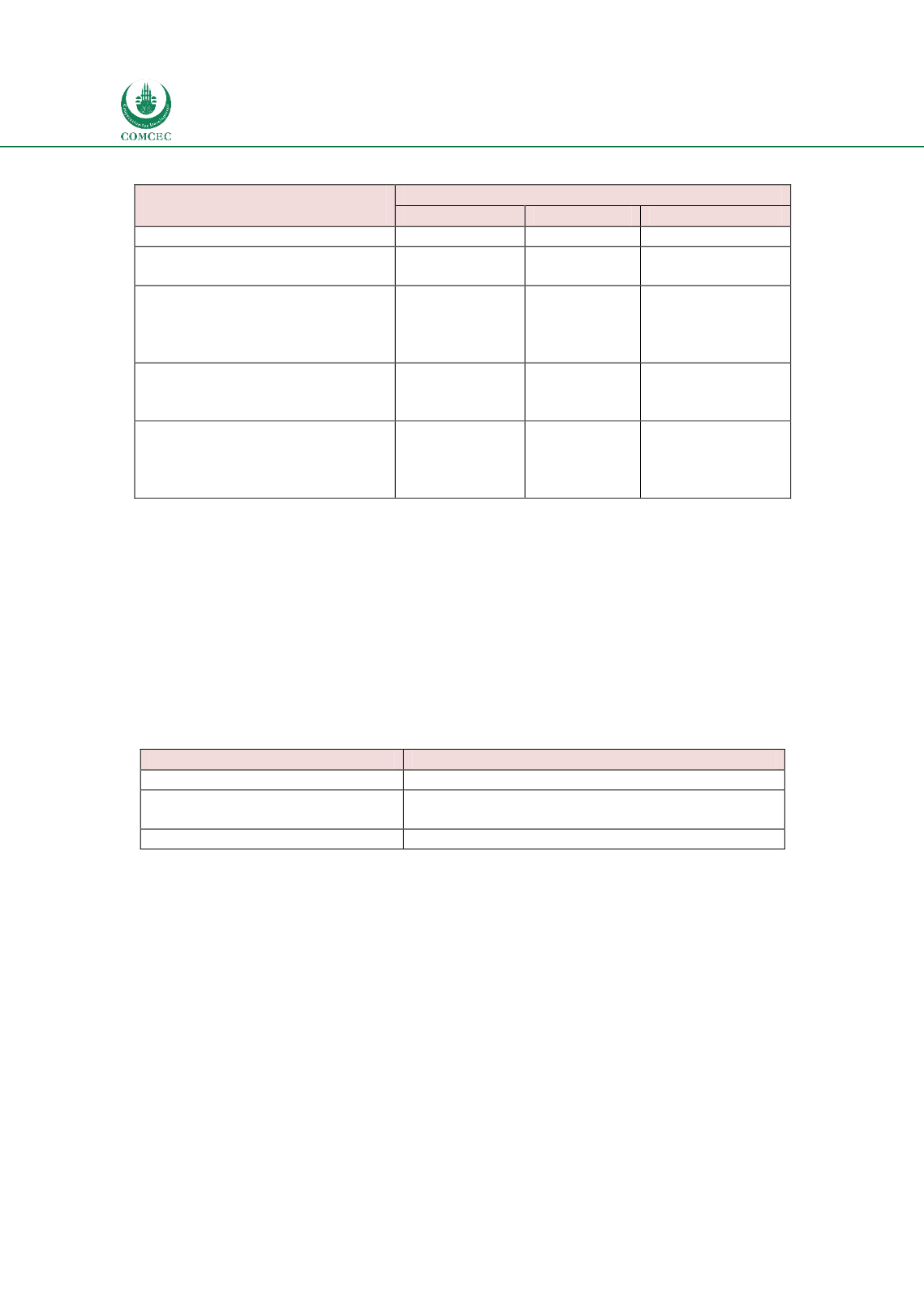

National and Global Islamic Financial Architecture:
Problems and Possible Solutions for the OIC Member Countries
192
Table
6.1: Status of Islamic Financial Laws
Legal Infrastructure: Financial
Laws
Countries
Banking
Takaful
Capital Markets
1.
Islamic Legal System
Sudan
Sudan
Sudan
2.
Separate
Islamic
Financial
Laws
Malaysia,
Malaysia,
Oman
3.
Islamic Finance in Existing
Financial Laws
Bangladesh,
Indonesia,
Oman, Pakistan,
Turkey, UAE
Bangladesh,
Indonesia,
Pakistan
Bangladesh,
Indonesia,
Malaysia,
Oman,
Pakistan, Turkey
4.
Law Provides Authority to
Regulators to Issue Regulations
on Islamic Finance
Nigeria
Nigeria, UAE
Nigeria, UAE
5.
Single Finance Law
Egypt,
Saudi
Arabia, Senegal
Egypt, Saudi
Arabia,
Senegal,
Turkey
Egypt,
Saudi
Arabia, Senegal
Tax Laws
The key issue related to tax laws appear in countries with dual financial systems where taxes
make the Islamic financial products more expensive relative to their conventional
counterparts. Some facilitative countries proactively change the tax laws to level the playing
field between conventional and Islamic financial institutions. Accordingly, countries can be
grouped into three types when it comes to implications of tax laws. The first group is one in
which tax laws are not relevant in Islamic finance either because the conventional financial
sector does not exist (Sudan) or because there are no taxes that specifically affect the Islamic
financial sector (Saudi Arabia and UAE).
Table
6.2: Status of Tax Laws to Accommodate Islamic Finance
Legal Infrastructure: Tax Laws
Countries
Not Applicable
Saudi Arabia, Sudan, UAE
Tax
laws
changed/
accommodated
Bangladesh, Indonesia, Malaysia, Oman, Pakistan,
Turkey
No change in tax laws
Egypt, Nigeria, Senegal
Countries in which the governments have taken a facilitative role and change tax laws to level
the playing field for Islamic finance are Bangladesh, Indonesia, Malaysia, Oman, Pakistan and
Turkey. Countries where tax laws have not been changed are Egypt, Nigeria and Senegal. One
of the implications of not changing tax laws is that Islamic financial institutions tend to
structure their products very similar to their conventional counterparts to lower the costs of
their products.
Dispute Resolution
Other than countries in which the legal system is Islamic, civil courts use the laws of the
country. The case studies show different arrangements for resolving disputes arising in the
Islamic financial sector. In countries with Islamic legal systems, the courts will apply Islamic
law and there may not be any need for special courts. However, in Saudi Arabia there is a
special committee that deals with cases involving the financial sector. The second group of
















